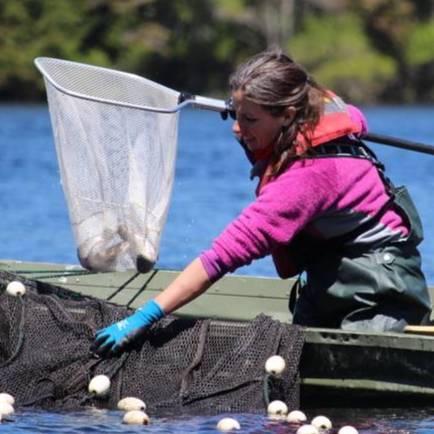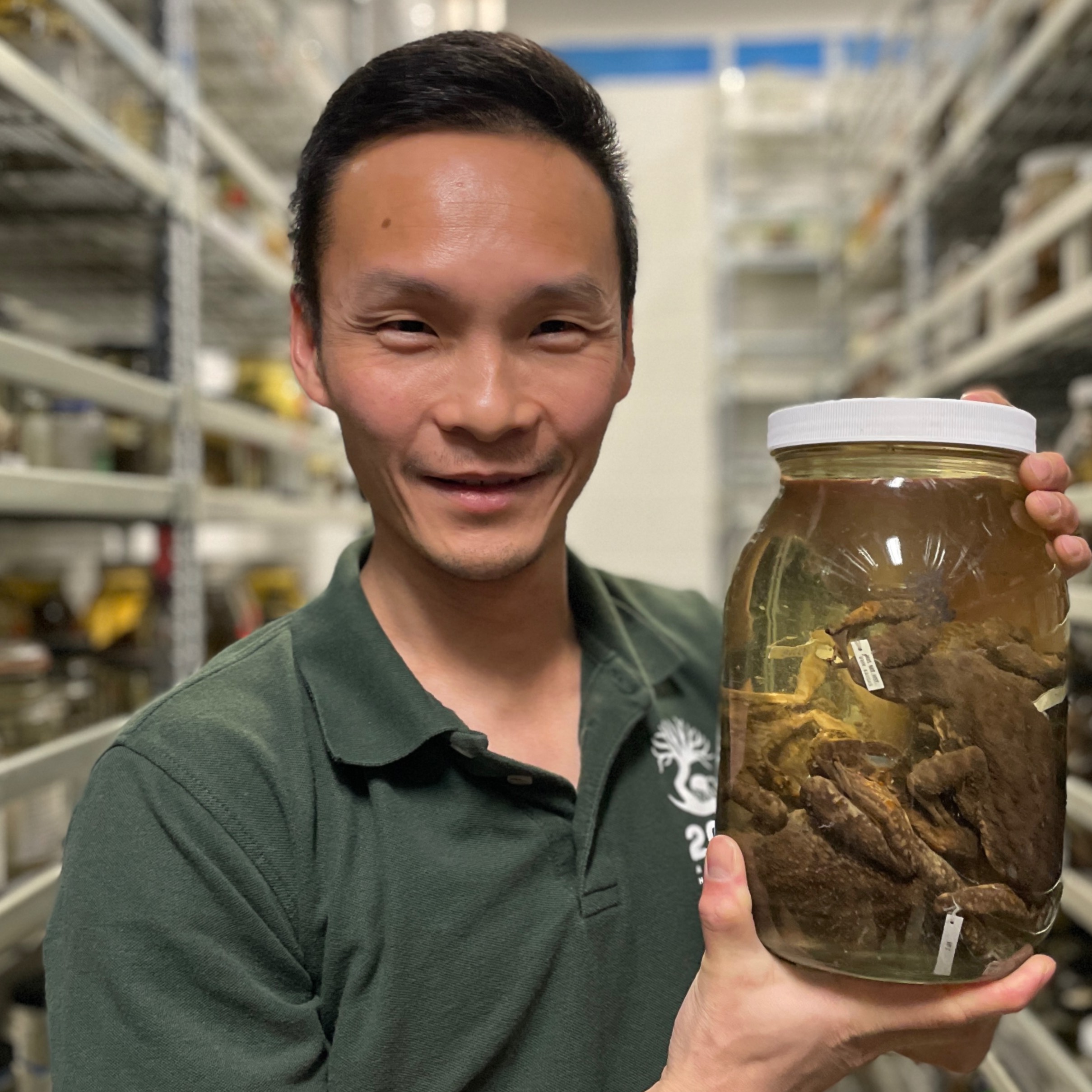Sam Ayebare Receives Fellowship from World Wildlife Fund to Further Biodiversity Research
Sam Ayebare, an MSU graduate student from Uganda, is dedicated to finding ways to mitigate the effects of habitat loss, industrial activities, and climate change in the Albertine rift, which stretches across six countries from the northern end of Lake Albert in Uganda to the southern end of Lake Tanganyika in Zambia. He has received a Russell E. Train Fellowship for Aspiring University Faculty for Conservation from the World Wildlife Fund (WWF), which will support his current research on mammals and birds in the Albertine Rift.
Sam said, "I am deeply pleased and honored to receive this fellowship." He is a Ph.D. student in the Department of Integrative Biology (IBIO) in the College of Natural Science and the Ecology, Evolution, and Behavior (EEB) program. "The funding will support my ongoing Ph.D. program and enable me to contribute to conservation efforts in the Albertine Rift."
The monetary award will help him complete the work he has begun in his first two years at MSU. The fellowship, open to candidates from WWF priority regions in select countries in Africa, Asia, and Latin America, is awarded to students who will return to their home country to work in conservation after completing their degree.
IBIO's chair, Tom Getty said, "We are fortunate and very pleased that Sam chose to join the MSU IBIO/EEB communities to advance his professional development. We will benefit from his contributions for several years. Africa and the world will benefit from his efforts for the rest of what we are confident will be a long productive professional career in conservation biology."
Before coming to the United States, Sam spent almost ten years in the field as a conservation researcher in Uganda working to sustain biodiversity within the Albertine Rift. Focused on minimizing the effects of industrial development and climate change, he helped influence wide-ranging management plans and policy. He realized the need for better ways to analyze the data he and his colleagues were collecting. He joined Elise Zipkin's Quantitative Ecology Lab in 2019 to increase his statistical toolbox and learn advanced approaches to data analysis.
Using data collected by the Wildlife Conservation Society since the 1990s, Sam's main goals for his dissertation are to integrate multiple sources of existing monitoring data, identify the factors causing current biodiversity trends, and determine the effectiveness of current mitigation efforts. By understanding more specifically what is impacting species, he can guide conservation and wildlife managers and inform policymakers.
Elise Zipkin, Sam's Ph.D. advisor said, "Sam's work in developing approaches to aggregate and analyze existing data will lead to a huge leap in knowledge on the status of biodiversity in the Albertine Rift. Furthermore, his work will provide the foundation for understanding if and how monitoring can be improved and what other pieces of information might be useful to assess and reverse species' declines."
Sam is eager to bring his quantitative expertise back to his home country. As soon as he finishes his Ph.D., he plans to teach others in Uganda about modern statistical methods in ecology and hopes to start an academic program at the Makerere University in Kampala, Uganda.



